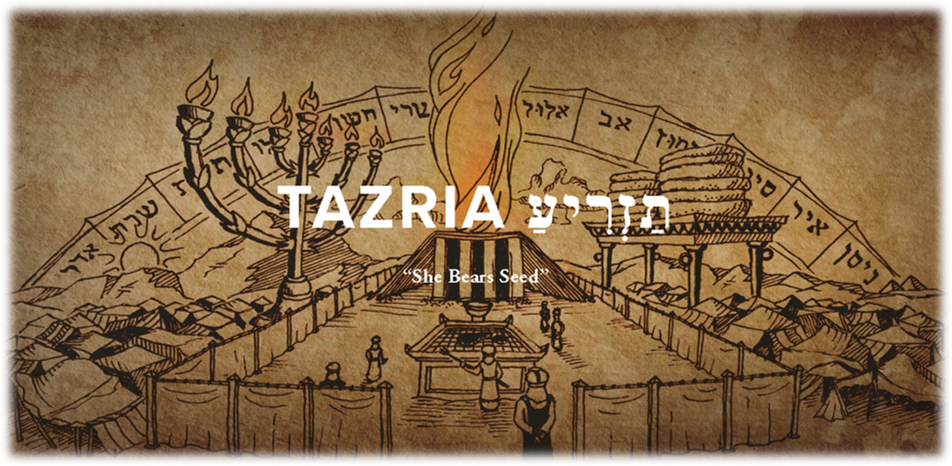We are “unrolling the scroll” along with the Jewish community worldwide each week on the Parashah Project website and will continue to make those weekly devotional commentary readings freely available on the Parashah Project. My goal is for these blogs is to offer Scriptural scaffolding to support you getting traction in studying the Scriptures. All this is to drive you deeper into the arms of Messiah who reveals the Father to all those with faith to believe and a will open to following the Good Shepherd.
In last week’s post, we looked at two calendars—biblical and church—and how the life is in the blood. Leviticus 17:11,
For the life of the flesh is in the blood… (ESV)
But remember, both calendars—and the entire sacrificial system—are all about RD4KB (Relational depth for Kingdom breadth)! These five words summarize my life’s message and are the common thread through all of my living, speaking, and writing.
Relational depth (RD) with God is the Father’s purposes in restoring all things. When Yeshua ascended 2,000 years ago, He went to sit down at the right hand of the Father—where He intercedes for you and me even now—and awaits for the fullness of time when He will return to claim His bride. Listen to the words of Peter in the more literal NASB translation of Acts 3:21 when he talked about God’s purposes in Yeshua’s return to bring about…
…the period of restoration of all things, about which God spoke by the mouths of His holy prophets from ancient times.
The words of Yeshua also pointed to this still future fullness of time moment when He will bodily return to earth—in heavenly glory—but to an earth that God intends to renew and restore to the original design which is steeped in goodness and glory. Matthew 25 speaks in many different ways of that future time and what God’s restoration will look like when God’s Kingdom is restored on earth. Look at how He describes His bodily return to earth in His glorified body—just like he ascended from the Mount of Olives in his resurrected body—in Matthew 25:31,
When the Son of Man comes in his glory, and all the angels with him, then he will sit on his glorious throne.
As it was on earth in Eden (perfect RD with God and people and people with each other) it will be again on earth that will be renewed and restored. God will be in our midst. Remember Exodus 25:8 and the stated purpose of the Tabernacle?
Then have them make a sanctuary (i.e., Tabernacle and then Temple) for me, and I will dwell among them.
The Hebrew word for “sanctuary” in Exodus 25:8 above is Mikdash (מִקְדָּשׁ) which comes from the root word kadosh which means “holy” or “set apart.” The Mikdash is a sanctuary, a set apart place designed to house the Holy One. Holiness is a big deal…because it governs and mediates access to the Presence of a Holy God.
Relational access and relational depth with God is what Leviticus is all about. It is also what the Messiah came to restore to both Jews and Gentiles without partiality. Relational access, however, requires faith and obedience. Faith-fueled obedience. Faith-fueled obedience to the voice of God and His commands.
The Torah is foundational to a biblical worldview and offers us the very words of God. This week marks a mid-point. We are halfway through the Torah! This week is also another double portion. (I include a set of reading strategies on the Parashah Project website to help you navigate the weekly rhythms of single and double portions.)
The two portions for this week conclude just before the monumental chapter 16 and instructions for Yom Kippur, the Day of Atonement. One of the final verses puts the RD focus clearly in view. God clarifies and explains that access to His holy Presence is what He is after and His instructions are designed to be protective to ensure this access. Remember, Yeshua opens up this access to all people through a “faith-line” (i.e., gentile inclusion) that is stronger than a mere blood-line (i.e., Jewish election). Leviticus 15:31 says,
This is how you will guard the people of Israel from ceremonial uncleanness. Otherwise they would die, for their impurity would defile my Tabernacle that stands among them.”
Tabernacle in this verse is the same Hebrew word we discussed above, Mikdash (מִקְדָּשׁ). God has drawn near to you in Messiah. He wants to draw near now and in all your days and moments. May we cultivate ears to hear His voice and a will to walk the narrow path that leads to live—even life eternal.
Readings for the Week (Double Portion):
Torah: LEVITICUS 12:1–13:59
Prophets: 2 KINGS 4:42–5:19
Apostolic Writings: LUKE 7:18–35
Torah: LEVITICUS 14:1–15:33
Prophets: 2 KINGS 7:3–20
Apostolic Writings: ACTS 10:1–35
Click on the picture above or the title name here for the online Parashah commentary for Tazria and M’tsora.
For those who have read to the end here, let me just acknowledge that these chapters in Leviticus are difficult. They contain some confusing things. But remember, blood contains life and God is good and wants to protect us from anything that harms. Don’t be offended by His rules when you don’t understand them. Let the tension drive you to Him in faith and like Jacob of old, wrestle with God until He gives you the blessing!
Shalom,
Thomas







